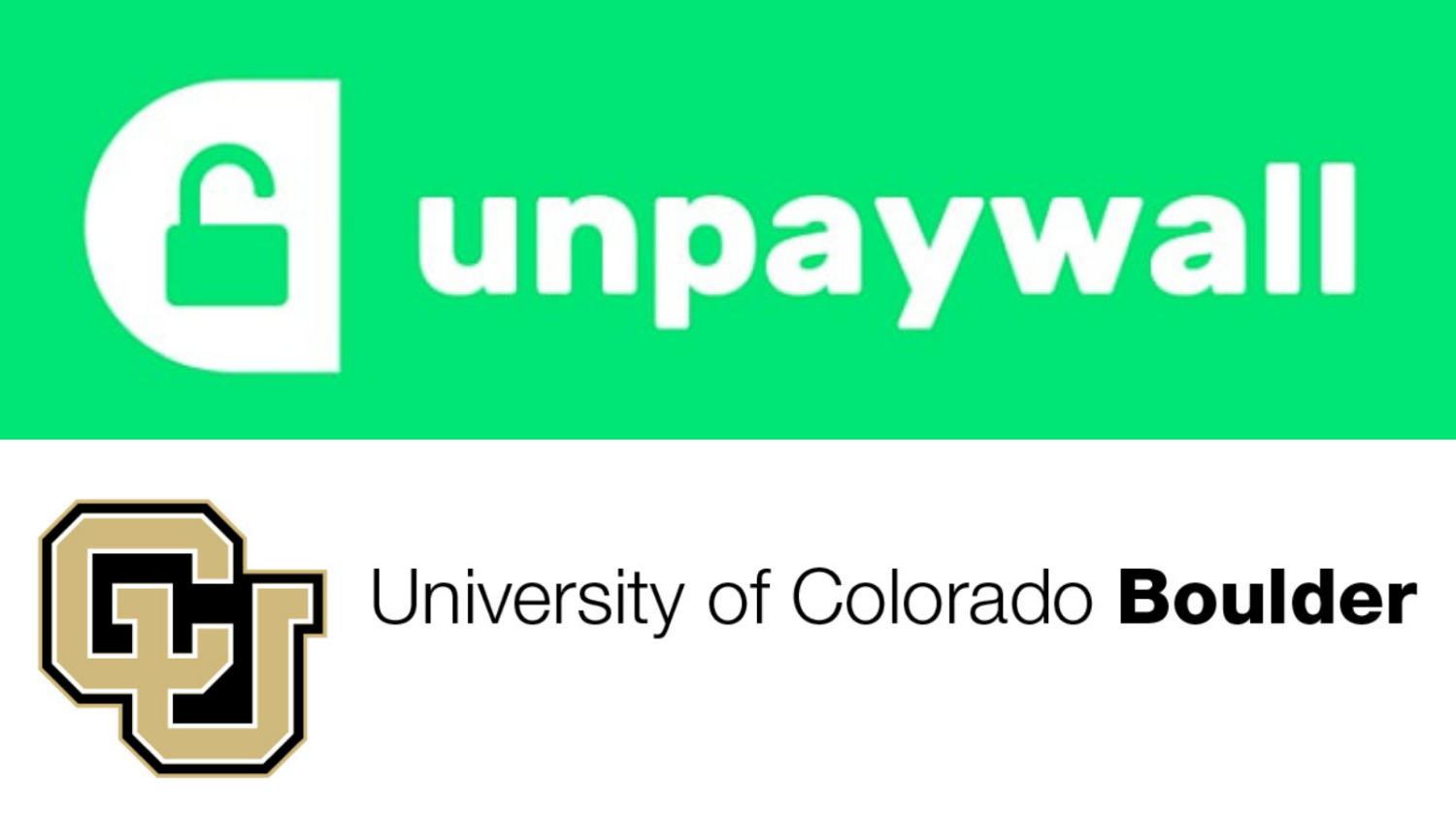CU Boulder adds new discovery tool for open access research

Journalists, policymakers and members of the public will have an easier time finding research published by CU Boulder faculty thanks to a new integration in CU Experts that automatically provides links to open access (OA) versions of articles from CU Scholar, the University Libraries’ institutional repository, and other OA locations via a third-party open database called Unpaywall.
Unpaywall aggregates data from CU Scholar and over 50,000 other publishers and repositories into the campus faculty profile system. This initiative, which utilizes Unpaywall to enhance data in CU Experts, makes publicly accessible versions of faculty publications easy to find regardless of the article’s original publication venue.
When an open access version of an article becomes available, the Application Performance Interface (API) finds the best version of the article—whether from CU Scholar, another repository, or the publisher’s website—which is then connected to the faculty member’s CU Experts profile.
The project was undertaken by the Office of Faculty Affairs, the University Libraries, the Office of Data Analytics (ODA) and the Faculty Information System (FIS) to expand the reach of faculty scholarship to a broader audience.
“This collaboration is a wonderful way to showcase the outstanding work of our faculty and give the community access to it, which also will help the research get to a wider audience and further increase its scholarly impact,” Michele Moses, Vice Provost and Associate Vice Chancellor for Faculty Affairs said.
Dean of Libraries and Senior Vice Provost of Online Education Robert H. McDonald calls the implementation a huge step forward in demonstrating the impact of OA within faculty information systems.
“At our campus we are fortunate to have a wonderful institutional repository and an invaluable current researcher information system that work together to present the research output of our campus in a way that opens access to all who need it,” McDonald said.“This new integration will make it easier for our researchers to share their research with everyone regardless of their ability to pay, a key component of our libraries’ vision to support an information-empowered world.”
The Scholarly Publishing and Academic Resources Coalition (SPARC) describes Open Access as “the free, immediate, online availability of research articles combined with the rights to use these articles fully in the digital environment.” Publishing open access can help researchers gain more readers, potential collaborators, citations for their work, and recognition overall. It also paves the way for researchers to use text and data mining tools to unlock new discoveries—a practice not widely adopted by legacy publishers.
“As a scholar wishing to share my work with the public and with other scholars globally, I have greatly increased the ‘reach’ of my research by making it discoverable and available in multiple open venues,” Joseph Polman, Associate Dean for Research in the School of Education and Professor of Educational Psychology & Learning Sciences said. “I really appreciate any new tools which can contribute to people finding and getting to my work without having to pay extra fees, so I’m excited that ODA, Faculty Affairs and the libraries are exploring Unpaywall.”

